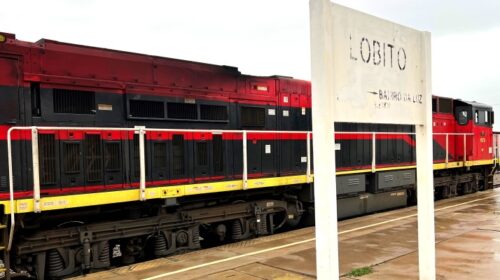The Impact of Lobito Atlântico Railways on the Benguela Railway Corridor
The management of the Benguela Railway (CFB) by the consortium Lobito Atlântico Railways (LAR), Trafigura, and Mota-Engil is expected to significantly enhance Angola’s Gross Domestic Product (GDP), contributing between $1.6 billion to $3.4 billion annually over the next 30 years.
This projection was shared by LAR administrator Ottoniel Manuel during a discussion on the Girassol television channel under the theme, “The Impact of the Lobito Corridor on the Angolan Economy and the SADC Region.”
Manuel outlined the consortium’s ambitious plans for the railway’s future operations and its economic implications.
Manuel revealed that the consortium aims to achieve a daily frequency of up to 50 trains during the 30-year concession period.
This operation is expected to create approximately 1,600 direct jobs, primarily focused on transporting large cargo, notably copper ore from the Democratic Republic of Congo and Zambia.
The Lobito Corridor, featuring 67 stations along its 1,344-kilometer railway line that spans the provinces of Benguela, Huambo, Bié, and Moxico, is set to foster small business development alongside railway operations.
This railway provides a competitive alternative to road transport, potentially reducing freight costs and promoting local economic growth.
Manuel highlighted that passenger and light cargo transport remains an exclusive function of the Benguela Railway.
Meanwhile, the Commercial Port of Lobito in Benguela Province is undergoing significant investments to transform into a “landlord” port.
As a landlord port, the Port of Lobito will manage public services and limited passenger and commercial product movements, while private entities will handle port infrastructure through concessions.
Since the beginning of operations on January 26th, preceded by asset transfers (including stations, railway lines, and rolling stock like wagons and locomotives), the corridor currently operates nearly six trains per week. The target is to increase this frequency to six trains per day over the concession period.
Development consultant Mário Pinto emphasized the Lobito Corridor’s sustainability, noting its positive impact on the economies of the DRC and Zambia.
The railway will significantly reduce the reliance on around five thousand trucks for ore transport, cutting transit times from 30-40 days to a much shorter period and lowering transportation costs.
Economist Augusto Fernandes advocated for the construction of additional branches and roads connecting production areas to the railway.
He stressed the importance of continued investment in projects that guarantee returns and called for ensuring legal security for investors to maintain the corridor’s growth momentum.
The Lobito Corridor stands as a vital development lever for Angola and the Southern African region. The collaborative efforts of the consortium, local stakeholders, and international investors are crucial for realizing the full economic potential of this significant infrastructure project.
SOURCE:freighttrendsglobal.com
175 total views , 1 views today





